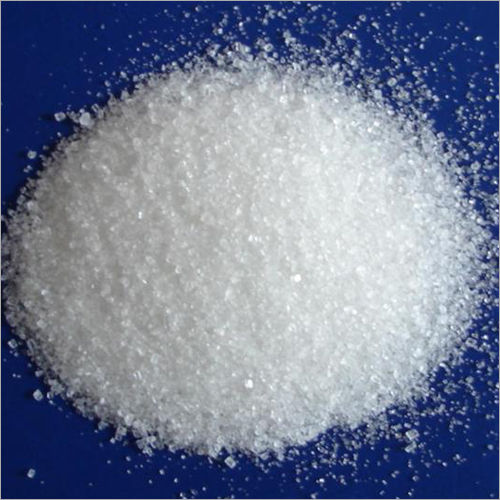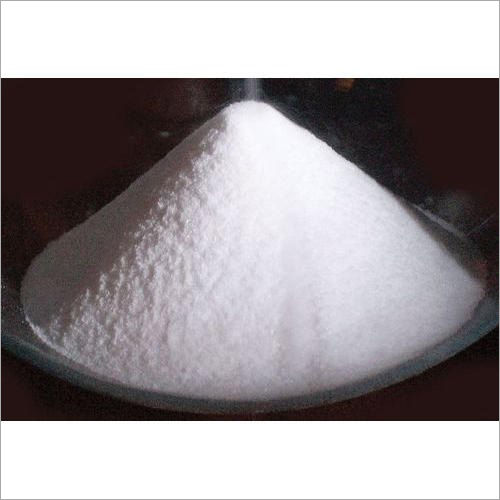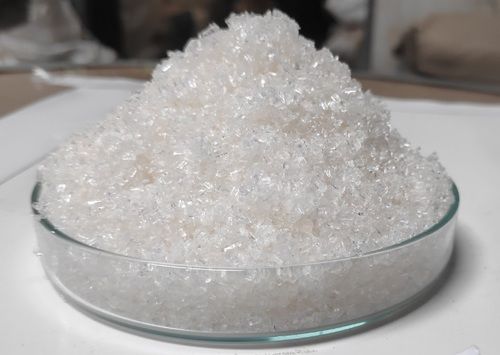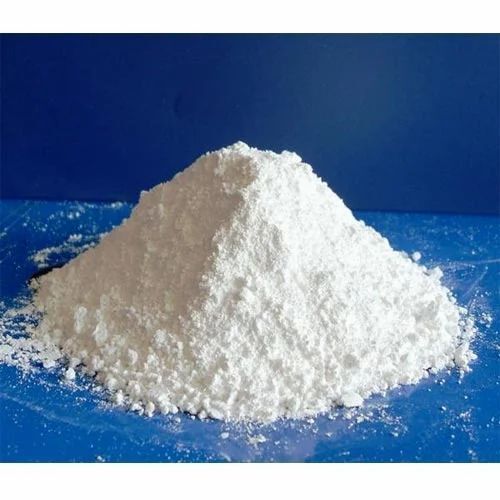
Ammonium Sulphate Crystal
10 INR/Kilograms
Product Details:
X
Ammonium Sulphate Crystal Price And Quantity
- 100 Kilograms
- 10 INR/Kilograms
Ammonium Sulphate Crystal Trade Information
- 50 Kilograms Per Month
- 4-5 Days
- All India
Product Description
By gaining immense industry experience, we have been engaged in manufacturing and suppliers a broad range of Ammonium Sulphate Crystal. We process these chemical agents by using organic and harmless compounds. Our provided range of Ammonium Sulphate is provided in the tamper proof packaging options. Further, they are tested by our quality assurance team to ensure they are free from impurities. Density and molecular weight of this chemical compound are 1.77 g/cm3 and 132.14 g/mol respectively. This chemical is insoluble in C2H5OH, acetone and ether. Its maximum water solubility is 103.8 g per 100 gram water at 100 degree centigrade temperature. Melting point of this chemical compound ranges between 235 degree centigrade to 280 degree centigrade. Standard of this substance has been tested on the basis of its storage life, formulation method, possible health hazards and purity level.
Ammonium Sulphate Crystal Properties:
1. Chemical formula : (NH4)2SO4
2. Other names : Ammonium sulphate ; Ammonium sulfate (2:1) ; Diammonium sulfate ; Sulfuric acid diammonium salt ; Mascagnite ; Actamaster
3. Molar mass : 132.14 g/mol
4. Appearance : Fine white hygroscopic granules or crystals
5. Density : 1.77 g/cm3
6. Melting point : 235 to 280 degree centigrade
7. Solubility : Insoluble in acetone, alcohol and ether
Ammonium Sulphate Applications:
1. Fertilizer: Ammonium sulfate is widely used as a fertilizer in agriculture due to its high nitrogen and sulfur content. It provides essential nutrients to plants, promoting healthy growth and improving crop yield. It is particularly beneficial for crops that require acidic soil conditions.
2. Food Industry: It is used as a food additive in bread-making processes to regulate acidity and improve dough quality.
3. Pharmaceuticals: In the pharmaceutical industry, it is utilized as a component in certain medications and also as a processing aid.
4. Textile Industry: Ammonium sulfate is employed in textile manufacturing processes, such as dyeing and printing, as a flame retardant and for enhancing dye penetration into fibers.
5. Water Treatment: It is sometimes used in water treatment processes to reduce the pH of alkaline water and as a flocculating agent to remove impurities.
6. Laboratory Applications: Ammonium sulfate is used in biochemical and molecular biology laboratories for protein purification through a process called salting out. It helps precipitate proteins from solution by altering the solubility of proteins at different salt concentrations.
7. Fire Retardants: It is used as a flame retardant in certain materials, including wood, paper, and textiles, due to its ability to reduce the combustion temperature of these materials.
Ammonium Sulphate FAQ:
Q: What is ammonium sulfate?
A: Ammonium sulfate ((NH4)2SO4) is an inorganic salt composed of ammonium ions (NH4+) and sulfate ions (SO42-). It appears as a white, crystalline solid with a variety of applications in agriculture, industry, and laboratory settings.
Q: How is ammonium sulfate produced?
A: Ammonium sulfate can be produced by several methods, including the reaction between ammonia gas and sulfuric acid or by neutralizing ammonia solution with sulfuric acid. It can also be obtained as a byproduct in various industrial processes, such as coal gas purification.
Q: What are the main uses of ammonium sulfate?
A: The primary uses of ammonium sulfate include:
- Fertilizer in agriculture for its nitrogen and sulfur content.
- Industrial applications in food processing, pharmaceuticals, textiles, and water treatment.
- Laboratory applications, especially in protein purification processes.
- Fire retardants and in certain chemical manufacturing processes.
Q: How does ammonium sulfate work as a fertilizer?
A: Ammonium sulfate provides essential nitrogen and sulfur nutrients to plants, promoting healthy growth and improving crop yield. It also helps acidify the soil, which is beneficial for crops that prefer acidic conditions.
Q: Is ammonium sulfate safe to use?
A: Ammonium sulfate is generally considered safe when used according to recommended guidelines. However, it is acidic and can irritate the skin, eyes, and respiratory system. Proper handling and protective equipment are advised when working with this compound.
Q: Can I use ammonium sulfate for all types of crops?
A: While ammonium sulfate is suitable for many crops, its acidic nature may not be ideal for all plants. It is particularly beneficial for crops that thrive in acidic soil conditions, such as certain fruits, vegetables, and grains. It's essential to consider the specific needs of each crop and soil type before applying fertilizers.
Q: How should I store ammonium sulfate?
A: Ammonium sulfate should be stored in a cool, dry place away from moisture and incompatible materials. It should be kept tightly sealed in its original packaging to prevent contamination and degradation. Proper storage helps maintain its quality and effectiveness over time.
Enter Buying Requirement Details





 Send Inquiry
Send Inquiry Send SMS
Send SMS Call Me Free
Call Me Free